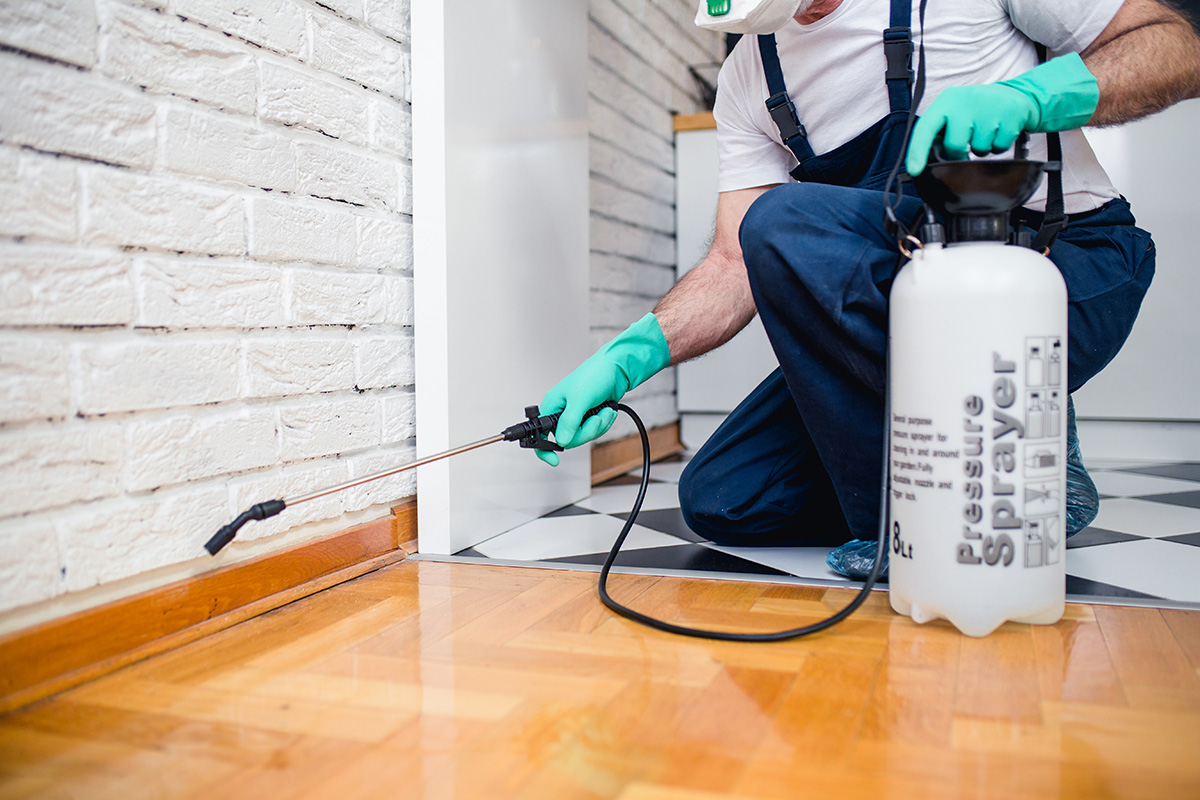Experienced A1 Exterminators Charlotte NC - Fast and Dependable Solutions
Experienced A1 Exterminators Charlotte NC - Fast and Dependable Solutions
Blog Article
Bed Pest Treatment Failure: Comparing Chemical Vs. Non-Chemical Solutions
In the world of insect control, especially when managing the relentless problem of bed pests, the choice between chemical and non-chemical therapy services can be an essential one. Both techniques provide unique advantages and drawbacks, influencing aspects such as efficiency, safety and security considerations, and general price. By examining the nuanced information of each approach, a clearer understanding of which path to pursue in resolving a bed bug infestation can be obtained.
Effectiveness of Chemical Therapies
Chemical treatments for bed bug invasions have been commonly identified for their powerful and quick efficacy in eradicating these insects. When considering the effectiveness of chemical therapies, it is essential to understand that they can offer a thorough and fast option to a bed bug issue. Expert pest control experts usually rely upon pesticides to target bed bugs at different stages of their life process, consisting of eggs, adults, and fairies. These chemicals commonly work by disrupting the bed pests' anxious system, bring about paralysis and ultimate fatality.
Furthermore, chemical therapies have the advantage of using residual results, implying that they can remain to eliminate bed bugs also after the first application. This recurring activity is especially valuable in combating any type of potential re-infestations. Furthermore, the rapid action of chemical therapies can bring alleviation to individuals encountering severe bed pest invasions, permitting them to reclaim control of their living rooms quickly.
Safety Worry About Chemical Solutions
One critical element that needs cautious consideration when utilizing chemical options for bed insect therapy is ensuring the safety and security of residents and the setting. While chemical therapies can be reliable in removing bed insects, they may pose dangers if not managed effectively. One of the primary security interest in chemical services is the prospective harm they can create to human wellness. Direct exposure to certain chemicals made use of in bed pest treatments can bring about respiratory system concerns, skin inflammation, or various other negative reactions, specifically in individuals with pre-existing problems or sensitivities. Furthermore, inappropriate application or dosage of chemical pesticides can result in harmful residues lingering in the treated area, positioning long-lasting wellness risks to residents.
Moreover, the environmental effect of chemical solutions is an additional substantial consideration. Some pesticides used in bed bug therapies may be dangerous to advantageous pests, wild animals, and ecological communities if they seep right into the dirt or water systems. It is important to make use of chemical therapies judiciously, adhering to security standards, and taking into consideration much less hazardous choices to reduce these risks and make sure the risk-free and reliable monitoring of bed bug invasions.
Advantages of Non-Chemical Approaches
Taking into consideration the prospective safety and security worries and ecological effect associated with chemical services for bed pest treatment, checking out non-chemical approaches presents an appealing option with a number of unique benefits. Non-chemical therapies are eco pleasant, as they do not add to air or water contamination, making them a sustainable option for insect control.
In addition, non-chemical services can be reliable in targeting bed insects, consisting of hard-to-reach locations where chemical therapies might not permeate. Techniques such as warmth treatment, vacuuming, vapor cleaning, and bed mattress coverings give comprehensive obliteration without making use of hazardous chemicals. Additionally, non-chemical approaches can be much less turbulent, needing very little preparation and permitting quicker reentry right into dealt with areas. Generally, selecting non-chemical bed bug therapy methods not just focuses on security and environmental management but likewise ensures effective and extensive bug control.
Limitations of Non-Chemical Treatments

In addition, non-chemical therapies typically require multiple applications to attain effective obliteration. This can be lengthy and might not always guarantee full elimination of all bed bugs and their eggs, particularly in hidden or hard-to-reach areas.
Moreover, the success of non-chemical treatments heavily relies upon proper execution and thoroughness, which can be testing for people without specialist expertise. Insufficient application of non-chemical approaches may cause incomplete obliteration, bring about persistent invasions and the requirement for added therapies.
For that reason, while non-chemical treatments have their benefits, it is vital to recognize these restrictions and consider them when identifying the most effective approach for taking care of bed insect infestations.
Expense Contrast: Chemical Vs. Non-Chemical Options
Offered the directory limitations linked with non-chemical treatments, a necessary element to assess in the context of bed bug monitoring is the cost comparison in between chemical click here for more and non-chemical options. In comparison, non-chemical therapies like warm treatment or steam can be much more expensive, with prices varying from $1,000 to $6,000 for an entire home. While the preliminary expense of chemical treatments might appear reduced, multiple treatments might be called for to fully remove the problem, possibly raising the general cost.
Verdict

Thinking about the prospective safety problems and environmental impact linked with chemical remedies for bed pest treatment, discovering non-chemical methods offers an encouraging alternative with numerous unique advantages.Given the restrictions associated with non-chemical therapies, a vital element to review in the context of bed bug management is the price comparison between chemical and non-chemical options. In comparison, non-chemical treatments like heat therapy or steam can be a lot more expensive, with costs varying from $1,000 to $6,000 for an entire home. While the preliminary price of chemical treatments may seem lower, multiple treatments may be needed to totally remove the invasion, possibly increasing the overall cost.In conclusion, when contrasting chemical and non-chemical bed bug treatment options, it is essential to think about efficiency, security, benefits, constraints, and cost.
Report this page